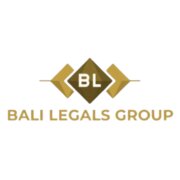Best Health Care Lawyers in Indonesia
Share your needs with us, get contacted by law firms.
Free. Takes 2 min.
Or refine your search by selecting a city:
List of the best lawyers in Indonesia
About Health Care Law in Indonesia
Health care law in Indonesia is a dynamic field that encompasses a wide variety of legal aspects relating to the organization, delivery, and financing of health care services in the country. The Indonesian health care system is governed by public and private institutions and is subject to regulations that ensure the provision of accessible, affordable, and quality health care. Key regulations are aimed at patient rights, health insurance, medical malpractice, and the professional conduct of health care providers. Recent reforms highlight the government's commitment to improving health care access through the national health insurance program, Jaminan Kesehatan Nasional (JKN), administered by the BPJS Kesehatan.
Why You May Need a Lawyer
Individuals and organizations often seek legal advice in health care for numerous reasons:
- Medical Malpractice: Navigating legal action related to medical negligence or errors.
- Health Insurance Disputes: Addressing conflicts with health insurers, including claim denials and coverage issues.
- Regulatory Compliance: Assisting health care providers in adhering to local laws and regulations.
- Patient Rights: Ensuring patient rights are respected, including confidentiality and consent issues.
- Business Transactions: Handling mergers, acquisitions, or partnerships in the health care sector.
Local Laws Overview
Several key legislative frameworks impact health care in Indonesia:
- Law No. 36 of 2009 on Health: Establishes the foundations for health services along with patient and provider rights and obligations.
- Law No. 44 of 2009 on Hospital: Regulates hospital services and management, ensuring standardized delivery of care.
- Law No. 40 of 2004 on National Social Security System: Provides the basis for the national health insurance program, JKN.
- Law No. 29 of 2004 on Medical Practice: Governs the authorization, licensing, and oversight of medical professionals.
Frequently Asked Questions
How does the national health insurance program, JKN, work?
The JKN program, administered by BPJS Kesehatan, provides health insurance to all Indonesian citizens and residents, funded through contributions from employers, employees, and government subsidies for low-income individuals.
What are the steps to take if I believe I am a victim of medical malpractice?
Victims should first gather all relevant medical records and seek an expert medical opinion. Legal advice should be sought to evaluate the case and possibly file a formal complaint or lawsuit.
How can I resolve a dispute with a health insurance provider?
Initially, try to resolve the issue directly with the insurer. If unresolved, escalate the matter to BPJS Kesehatan or the Financial Services Authority (OJK) for mediation or legal representation.
What are my rights as a patient in Indonesia?
Patients have the right to informed consent, confidentiality of their health information, access to their medical records, and to quality health care without discrimination.
Is telemedicine legal in Indonesia?
Yes, telemedicine is legal and increasingly regulated, especially following the COVID-19 pandemic, with guidelines issued for its safe and effective use.
What should health care providers know about regulatory compliance?
Providers must adhere to numerous regulations concerning licensing, medical practices, hospital management, and patient safety standards, often requiring legal consultation to ensure ongoing compliance.
Can health care services be privately insured in Indonesia?
Yes, private health insurance is available and can complement the JKN program, offering broader coverage or faster access to services.
What are the legal requirements for starting a health care business?
Legal requirements include obtaining appropriate licenses, permits, adhering to health and safety standards, and compliance with local legislation on health care practices.
How are health care professionals licensed in Indonesia?
Health care professionals must be registered and obtain a license through relevant professional boards and adhere to continuing education requirements to maintain their licensure.
What avenues are available for patient grievances?
Patients can file complaints with health care providers directly, or escalate issues to BPJS Kesehatan, the Indonesian Medical Council, or legal authorities if unresolved.
Additional Resources
Important resources for legal advice and information include:
- BPJS Kesehatan: Manages the national health insurance program JKN.
- Indonesian Medical Council (KKI): Supervises the practices of medical professionals.
- Ministry of Health of the Republic of Indonesia: Provides official details and regulations related to health care.
- Indonesian Hospital Association (PERSI): Offers resources and support for hospital management and operations.
- Legal Aid Institutions: Provide legal assistance and consultation for health care-related issues.
Next Steps
If you need legal assistance in health care, consider following these steps:
- Document all pertinent information and communication related to your issue.
- Consult with a lawyer specializing in health care law for professional guidance.
- Engage with local health authorities or regulatory bodies for support and clarification.
- Explore arbitration or mediation services for dispute resolution before proceeding to litigation.
- Stay informed about your rights and obligations under current health care regulations.
Lawzana helps you find the best lawyers and law firms in Indonesia through a curated and pre-screened list of qualified legal professionals. Our platform offers rankings and detailed profiles of attorneys and law firms, allowing you to compare based on practice areas, including Health Care, experience, and client feedback.
Each profile includes a description of the firm's areas of practice, client reviews, team members and partners, year of establishment, spoken languages, office locations, contact information, social media presence, and any published articles or resources. Most firms on our platform speak English and are experienced in both local and international legal matters.
Get a quote from top-rated law firms in Indonesia — quickly, securely, and without unnecessary hassle.
Disclaimer:
The information provided on this page is for general informational purposes only and does not constitute legal advice. While we strive to ensure the accuracy and relevance of the content, legal information may change over time, and interpretations of the law can vary. You should always consult with a qualified legal professional for advice specific to your situation.
We disclaim all liability for actions taken or not taken based on the content of this page. If you believe any information is incorrect or outdated, please contact us, and we will review and update it where appropriate.
Browse health care law firms by city in Indonesia
Refine your search by selecting a city.
















